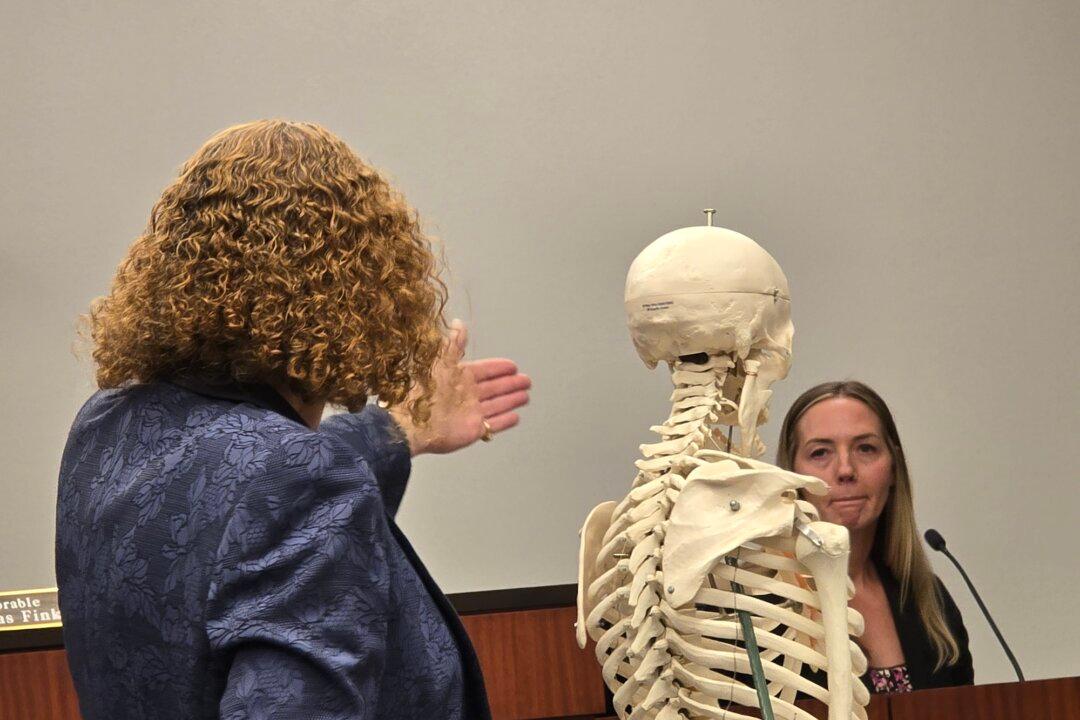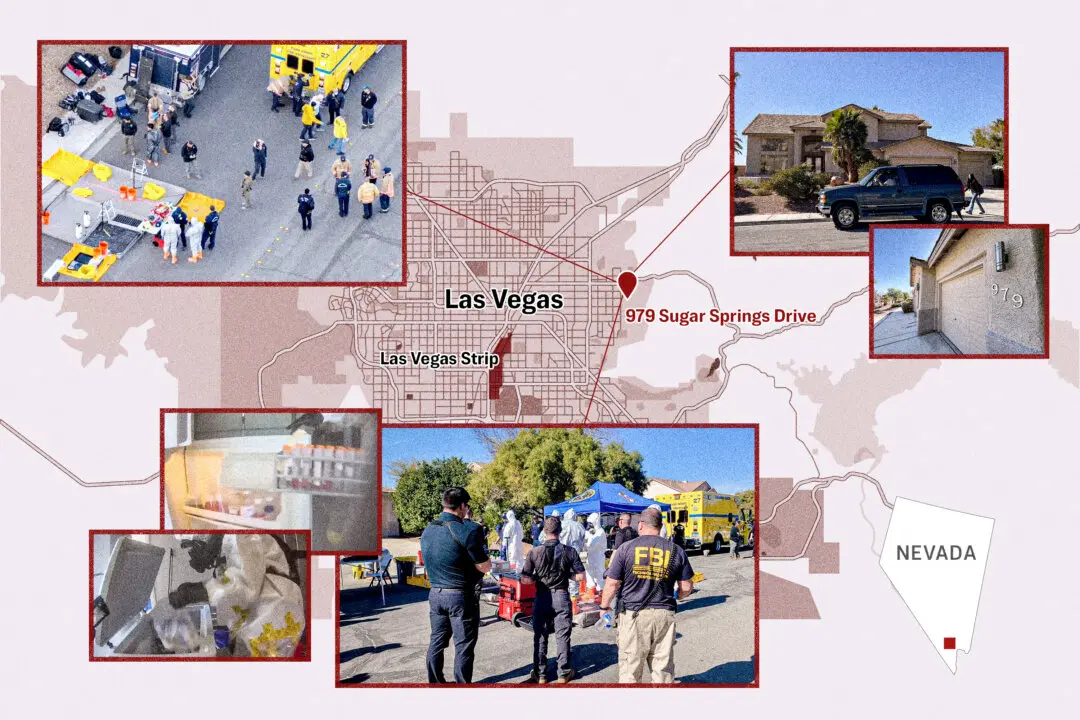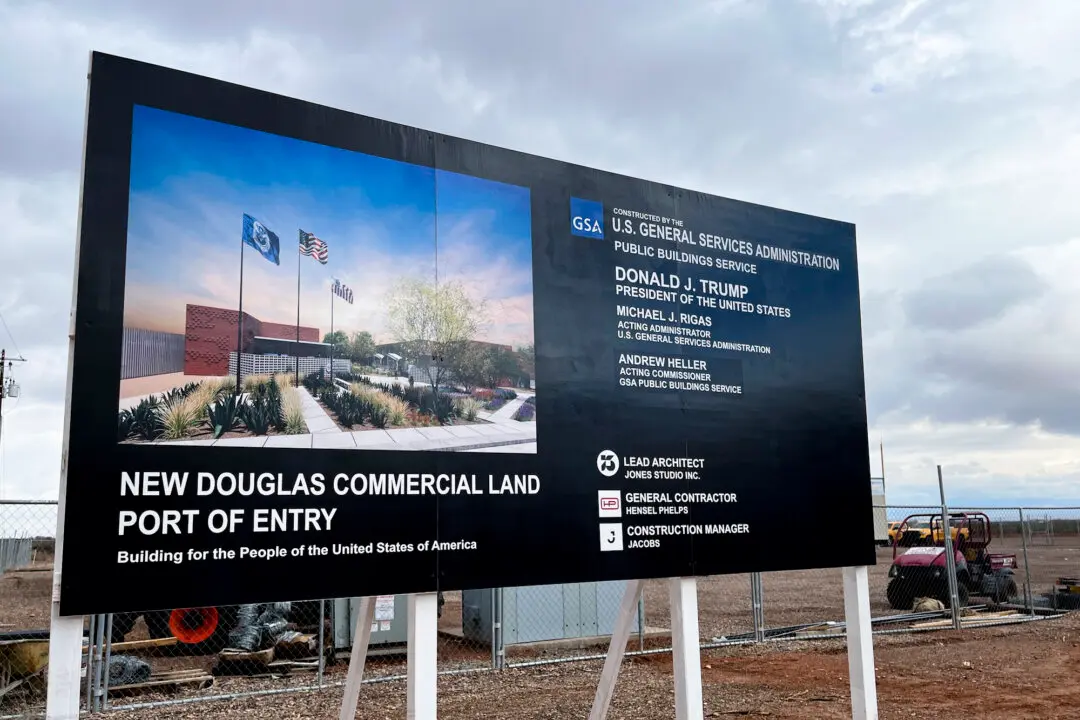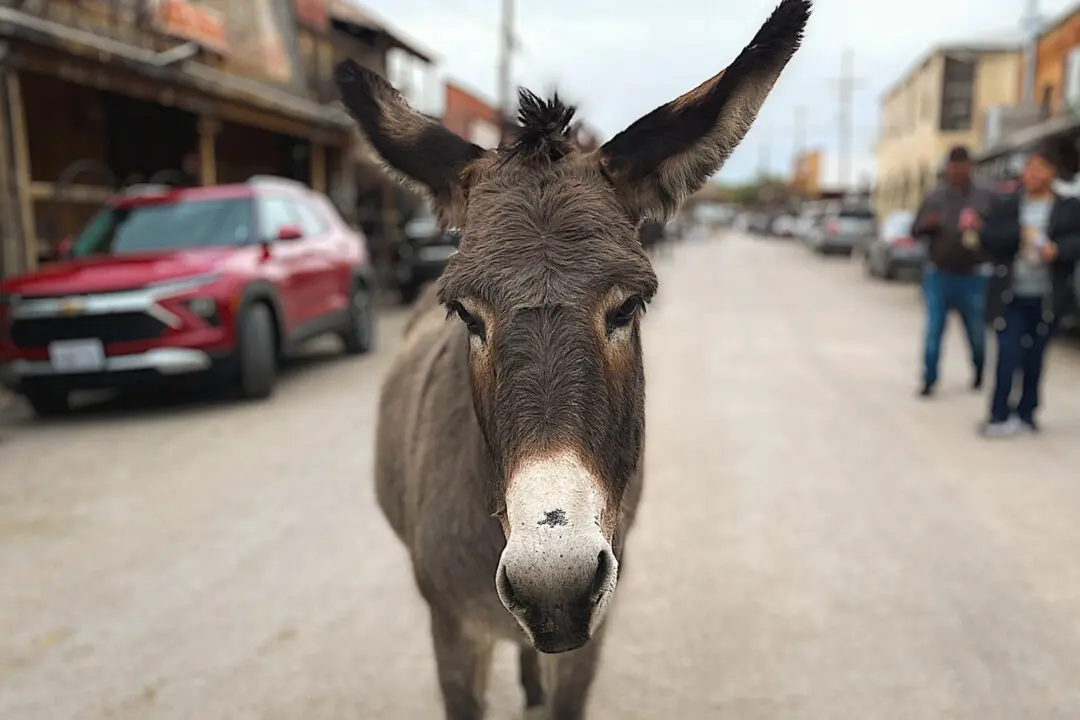NOGALES, Ariz.—An illegal immigrant suffered massive internal injuries from a single gunshot wound the night he was found dead on the property of an Arizona rancher accused of his murder, according to a forensic pathologist who performed the autopsy.
However, the exact time of death remains a mystery, Dr. Krista Timm, a forensic pathologist at the Pima County Medical Examiner’s Office in Tucson, told a jury in Santa Cruz County Superior Court on April 2.





